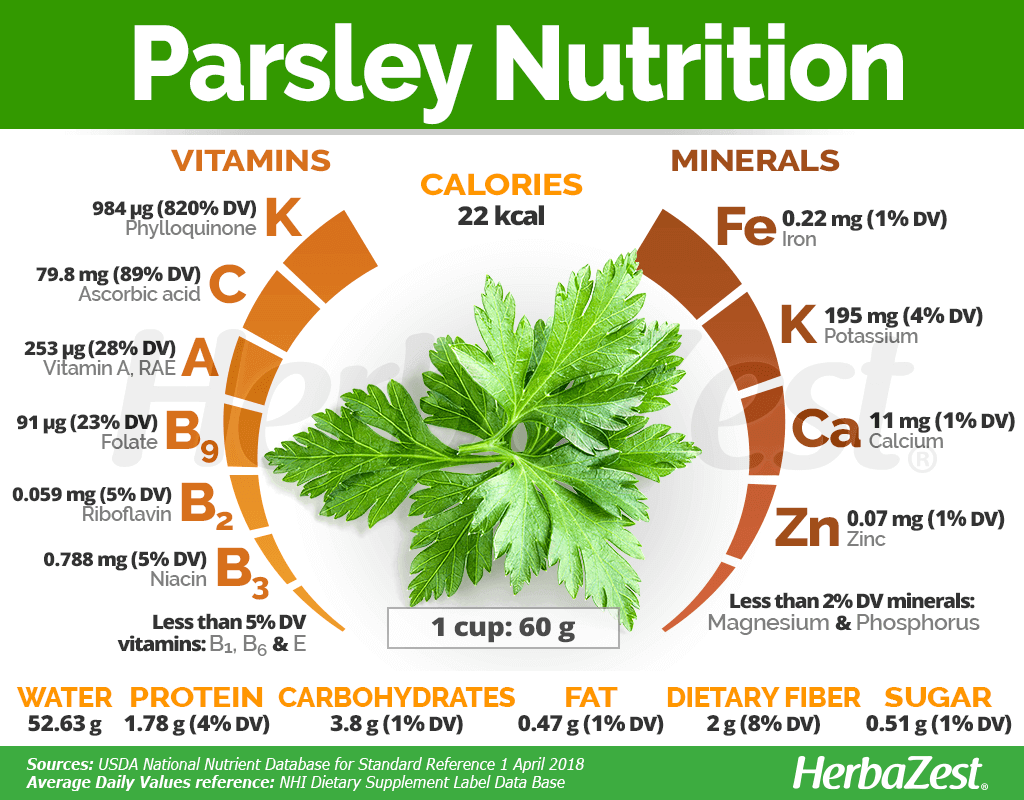Parsley is a versatile herb that is commonly used as a garnish or ingredient in a variety of dishes. In addition to adding flavor and color to your meals, parsley also offers a range of health benefits. This herb is low in calories but packed with essential nutrients, making it a great addition to a balanced diet.
One tablespoon of fresh parsley (approximately 8 grams) contains:
Parsley Nutritional Information
- Calories: 1
- Carbohydrates: 0.1 grams
- Protein: 0.1 grams
- Fiber: 0.1 grams
- Fat: 0 grams
2. Health Benefits
Parsley is an excellent source of vitamin K, which plays a key role in blood clotting and bone health. It also contains high levels of vitamin C, an antioxidant that helps boost the immune system and promote skin health. Additionally, parsley is rich in vitamin A, which is essential for eye health and proper immune function.
Furthermore, parsley contains minerals such as iron, calcium, and potassium, which are important for various bodily functions including muscle function, bone health, and maintaining fluid balance.
3. How to Incorporate Parsley into Your Diet
There are many ways to enjoy the nutritional benefits of parsley. You can add fresh parsley to salads, soups, stews, sauces, and marinades for a burst of flavor and nutrients. You can also blend parsley into smoothies or use it as a garnish for meat, fish, or vegetable dishes.
For a simple and refreshing parsley salad, combine chopped parsley with diced tomatoes, cucumbers, red onion, olive oil, lemon juice, salt, and pepper. This dish is not only delicious but also a great way to increase your intake of vitamins and minerals.
